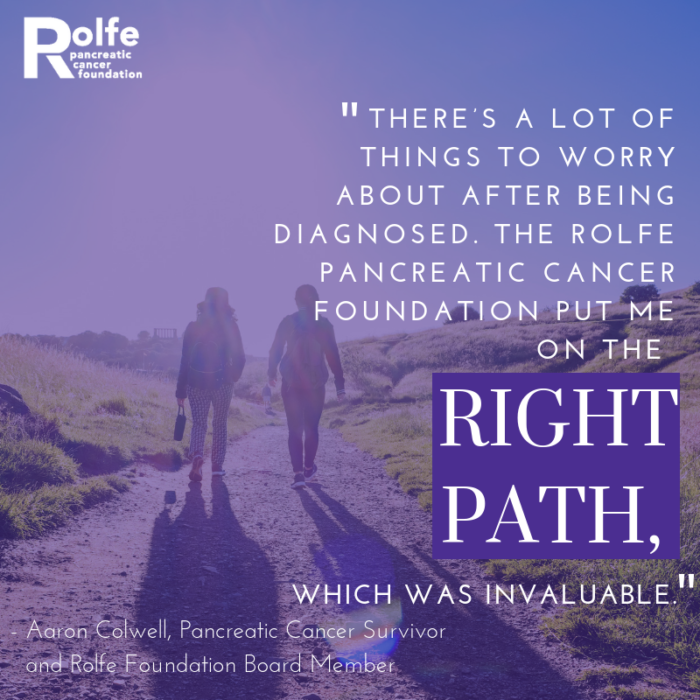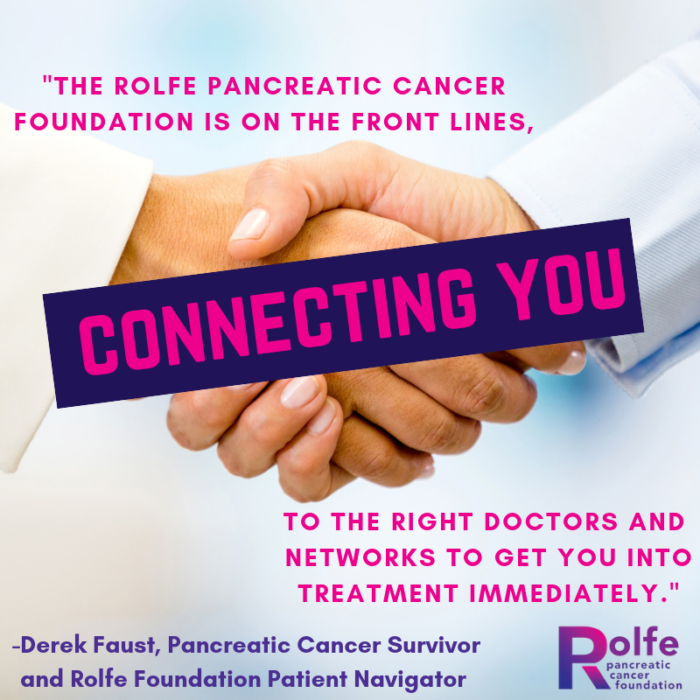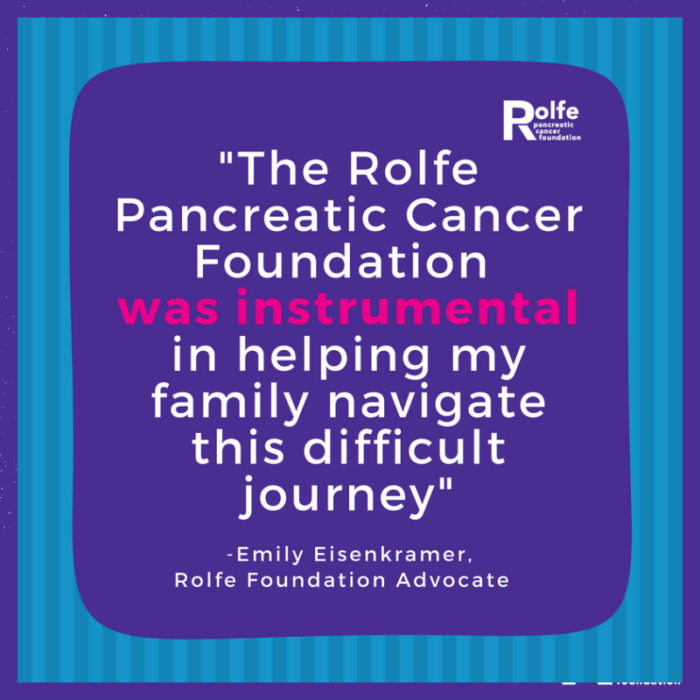Cancer sucks. It’s a horrible disease that has likely affected someone that you know, or perhaps even yourself. I’ve known people affected by cancer throughout my life, and I am actually a cancer survivor myself. Unfortunately, my mother in law was not so lucky and I am partnering with Rolfe Pancreatic Cancer Foundation in honor of her, to share all about Pancreatic Cancer Awareness Month in November.

Did you know that one of the most deadly cancers is pancreatic cancer, with a mere 7 percent five-year survival rate? I didn’t know that either, until after my mother in law’s diagnosis, once it was already too late to save her. In fact, just like in her case, there is often a very short time from diagnosis to death and there is often little warning. This creates a life-altering impact on families, as well as those diagnosed with pancreatic cancer. Sadly, many cases are not diagnosed until it’s too late, although Pancreatic cancer can be treatable when caught early enough.
Knowing your family’s genetic history is important and Thanksgiving is the perfect time to talk about any history of pancreatic cancer. There are two steps in early detection of Pancreatic cancer:
- Step #1 ? Know Your Family
- Step #2 ? Know Your Risk

Survival rates are significantly impacted by early detection and?the Rolfe Pancreatic Cancer Foundation has provided some online tools to help encourage families to “Know Your Family” and “Know Your Risk” of pancreatic cancer this Thanksgiving. The “Know Your Family” web tool can help individuals not only understand their risk for pancreatic cancer but can also help them walk through their family history through an easy-to-use, helpful Know Your Family worksheet, which can be downloaded for free.

It’s a good idea to talk to a doctor or genetic counselor if you do have a family history of pancreatic cancer and www.KnowMyRisk.org can help you find a local certified genetic counselor. So while you’re sitting with your family this Thanksgiving, discuss your family’s history of pancreatic cancer. Don’t wait until it’s too late because early detection is key to making sure you can celebrate another Thanksgiving together.
If you, or someone you love has been diagnosed with cancer, or if you have lost someone close to you, please talk to someone. Those emotions are too much to keep inside and to burden yourself with. Click here to find a therapist near you.